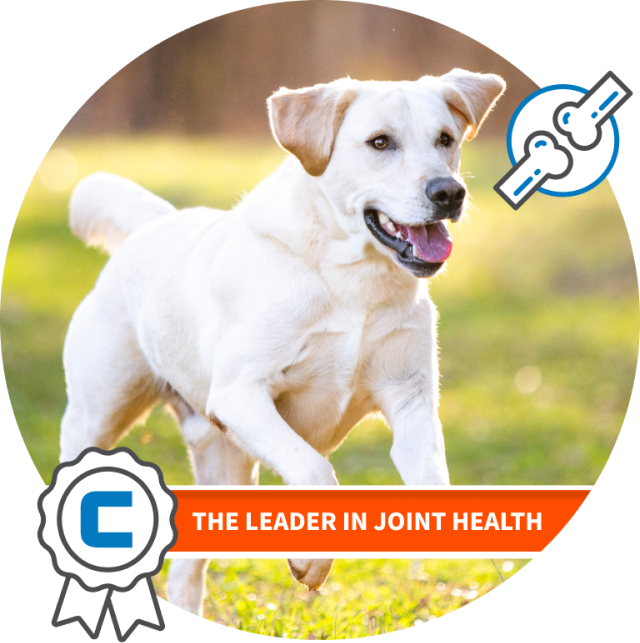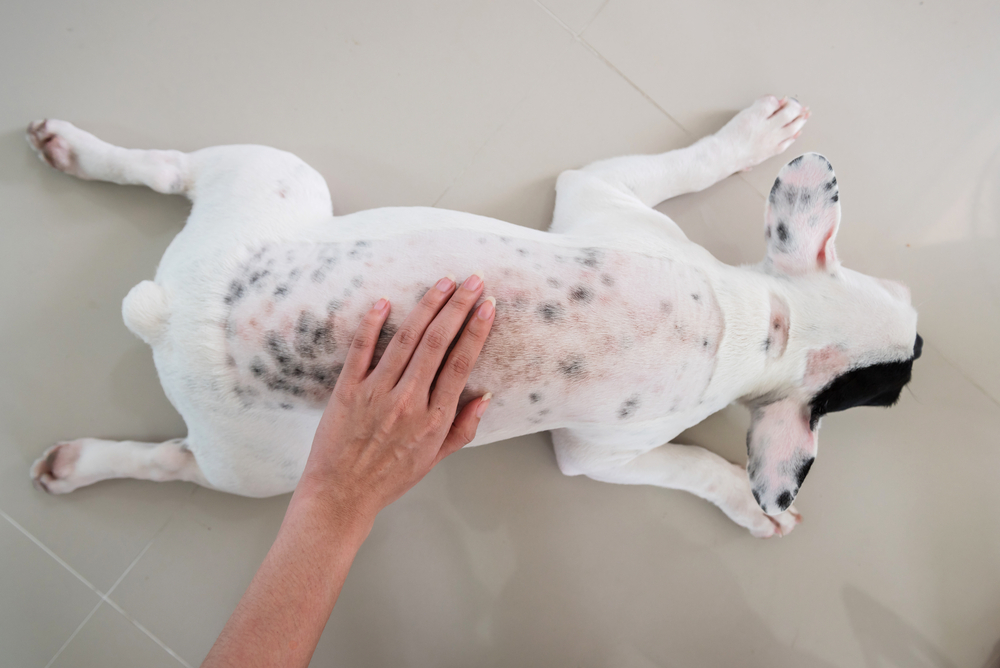Great Info For Deciding On Pet Wellbeing Australia
Great Info For Deciding On Pet Wellbeing Australia
Blog Article
How Is Dog And Cat Joint Health Helped With Turmeric (Curcumin)?
Turmeric, specifically curcumin and its active compound is recognized for its potential benefits to supporting joint health for cats as well as dogs. How turmeric can benefit pets suffering from joint pain:
Anti-inflammatory properties
Reduce inflammation:
Curcumin (the active component of turmeric) is an anti-inflammatory compound that has powerful properties. It reduces the activity of cytokines and enzymes which promote inflammation.
Curcumin is a natural remedy to reduce inflammation of joints. This helps to reduce swelling and pain caused by arthritis and other joint disorders.
Antioxidant Effects
Oxidative Stress Reduction
Curcumin acts as a potent anti-oxidant. It neutralizes cellular damage-causing free radicals as well as inflammation that causes it.
Benefits: Reducing the stress of oxidative can help protect joint tissues from damage, potentially slowing the progression of joint diseases and maintaining joint health.
Pain Relief
Natural Painkiller:
Curcumin is known to reduce pain by modulating the pain pathways.
Benefits : Providing natural relief from pain for pets that suffer from joint problems can enhance their living conditions, allowing them more comfort and physical activity.
Cartilage Protection
Inhibition of Cartilage Breakdown:
Curcumin is a powerful antioxidant which helps protect cartilage from deterioration.
Benefits: Protecting cartilage helps keep joints healthy for pets with joint issues.
Immune System Modulation
The immune system responds to balance
Function: Curcumin promotes an immune system that is balanced and helps regulate inflammation.
Benefits: A well-balanced immune system can prevent excessive inflammation and further joint damage, contributing to overall joint well-being.
Joint Health Overall Benefits
Turmeric improves mobility for pets with joint diseases by reducing discomfort and inflammation. It also helps protect cartilage.
Improved Quality of Life: Pets who are less in discomfort and are more mobile tend to be active and active. This can lead to better quality of life.
Use and considerations
Dosage and administration: correct dose of curcumin or turmeric for pet owners is determined by the weight, size, and individual health needs. Follow the instructions on the label or from your doctor. To increase the absorption of curcumin, it's usually given along with black piperine extract.
Turmeric supplements for dogs are offered in various forms. They include capsules as well as powders and chews. It is crucial to select a pet specific product with a high-quality product. This will ensure both the safety and effectiveness.
Side Effects: While generally considered to be safe for pets high doses of medication can cause digestive upset. By starting with a low dose and gradually increasing the dosage and gradually, you can reduce the adverse effects. It is crucial to keep an eye on the reactions of your pet.
Conclusion
Turmeric and its active ingredient, curcumin, provides numerous advantages to joint health for both cats and dogs. Its anti-inflammatory, antioxidant, and pain-relieving properties help reduce joint pain and inflammation, ensure the protection of cartilage and increase overall joint functionality. Regular use of turmeric supplements may enhance mobility and the health of pets suffering from joint problems. View the best dogs supplements for joints hints for blog info including pet lavender supplements, pet slippery elm supplements, pet prebiotics australia, dog vitamins, pet supplements for pets with fear of collars and harnesses, pet supplements for pets with ringworm, pet skullcap supplements, kidney disease in dogs and more.
Quercetin Assists In The Treatment Of Cat And Dog Skin Allergies.
Quercetin (a natural flavonoid) is a flavonoid found in many vegetables, fruits and other food items. It has been shown to reduce skin allergies in cats as well as dogs. Here's how quercetin can help with skin allergies.
Anti-inflammatory properties
Reduced inflammation
Function: Quercetin is a strong anti-inflammatory drug that blocks the production of proinflammatory cytokines histamines and chemokines.
Benefits: Quercetin reduces inflammation and relieves inflammation, swelling, and redness due to skin allergies. This leads to better overall skin health.
Antihistamine Effects
Natural Antihistamine:
Quercetin works by inhibiting the release of histamines in mast cells. Histamines cause itching skin rashes and other allergic reactions.
Benefits Quercetin is a naturally occurring antihistamine which can help reduce itching, as well as other allergic reactions. It can provide relief to pets suffering from skin allergies.
Antioxidant Activity
Oxidative-Stress Reduction
Function: Quercetin helps neutralize oxidative stress and free radicals.
Benefits of reducing the oxidative stress This can help protect skin cells against injury, aid in healing, and keep overall skin health.
Immune System Modulation
Balanced Immune Reaction:
Function: Quercetin is a modulator of the immune response, which ensures a balanced response against allergens.
Benefits: An immune system that's well-balanced can lessen the intensity of allergic reactions as well as their frequency.
Enhancement of the Skin Barrier Function
Strengthening Skin Barrier:
The function: Quercetin aids in the production of ceramides. This lipid is important to maintaining an encapsulated, healthy skin.
Benefits of having a stronger skin barrier: It assists minimize allergic reactions by shielding against allergens, pathogens and environmental irritants.
Allergy Symptom Management
Treatment for Symptoms
Function: Quercetin inhibits enzymes involved in the process of inflammation including lipoxygenase.
Benefits : It reduces symptoms of itching, inflammation, and irritation. It offers peace and relaxation for pets.
Practicality and considerations
Dosage and Administration: The appropriate dosage of quercetin depends on the size of the pet, weight, and specific health requirements. The instructions on the product's label or the advice of the vet are essential. Quercetin is available in combination together with bromelain to improve its absorption.
Quercetin is available as a pet supplement in a variety of varieties. Pick a supplement that is secure and safe for your pet.
Quercetin negative consequences: Quercetin in high doses is generally not harmful, but it can upset the stomach of some pets. It is recommended to begin with a smaller dose and increase it slowly. This can help to minimize the effects. Monitoring adverse reactions is vital, including diarrhea and vomiting.
You can also read our conclusion.
Quercetin is a potent antioxidant is a fantastic supplement that can help control allergies in cats and dogs. Its antihistamine and antioxidant properties help reduce itching, inflammation and oxidative stress. It also helps in improving the barrier to skin, modulating immune response, and improving the quality of life for pets with skin allergies. Quercetin's regular use can provide significant relief from allergies and improve overall skin health, enhancing the overall quality of life for pets suffering from skin allergies. Take a look at the most popular natural dog company for blog recommendations including holistic pet supplements, pet supplements for pets with fear of collars and harnesses, pet digestive enzymes, pet digestive supplements, pet supplements for pets with fear of grooming tools, australian natural pet products, nutritional supplements for dogs, pet supplements for pets with fear of grooming tools and more.
Apple Cider Vinegar Can Be Used To Treat Yeast Infections In Dogs And Cats.
Apple cider vinegar (ACV) is often suggested as a natural treatment for yeast illnesses in cats and dogs. Although there's anecdotal evidence and a few studies that suggest the potential benefits of ACV however, it is important to apply ACV cautiously and under medical supervision due to its acidic nature and potential unwanted side effects. ACV could help in treating yeast infections.
Antifungal Properties
Acidic Environment
ACV is a liquid with a pH range of 2.5 and 3 which is considered acidic. This acidic atmosphere can create an inhospitable environment for yeast growth.
Benefits Applying ACV or adding diluted ACV to the bath water of your pet could lessen the yeast overgrowth on the skin and ears.
Skin pH Regulator
Balancing Skin pH:
Function: ACV is believed to assist in the balance of pH levels, which can support a healthy skin barrier and reduce yeast growth.
Benefits: Maintaining a healthy pH balance can prevent yeast acne on your skin and help improve your skin's health.
Anti-inflammatory Effects
Reduce inflammation
ACV is mildly anti-inflammatory.
Benefits Reduce inflammation and ease symptoms such as itching, redness and discomfort that can be caused by yeast infections.
Support for Digestive Health
Internal Use
ACV could help improve digestive health, and help balance the gut microbiome when consumed.
Benefits of a healthy gut can limit yeast growth by supporting overall immune system and microbial balance.
Questions and Use
Topical Use: Mix it by mixing it with water (typically 2-3 parts ACV per 1 ounce of water) and apply the spray to the affected area of the ears or skin. Avoid direct application on open wounds or to sensitive skin.
Consult your physician prior to using ACV internally. ACV is a good choice for young children in small amounts and should be highly dilute (e.g. one teaspoon or a tablespoon for each cup of water).
Examine for signs of irritation, or any allergic reaction after applying ACV to the skin. Refrain from using ACV if negative reactions do occur.
Consultation with a Veterinarian: Prior to using ACV for treating yeast infections in animals, it's essential to consult with a veterinarian. Your veterinarian will advise you on the best dilution method as well as the proper method of application and any possible risks dependent on the health of your pet.
End of Service
Apple cider vinegar can be used to treat yeast infections in dogs and cats However, it should be done under the supervision of a veterinarian. ACV is acidic, and can create an environment which does not promote yeast growth. It also has some mild anti-inflammatory properties. Proper dilution, and careful application is necessary to prevent irritation or negative effects. ACV treatment is safe when it is accompanied by veterinary advice. See the most popular naturalpetsupplements.com.au supplements for website recommendations including pet ear supplements, pet reproductive supplements, pet supplements for pets with cancer, pet supplements for pets with elbow dysplasia, pet collagen supplements, pet passionflower supplements, pet supplements for pets with fear of tv and radio, pet supplements for pets with weak bones and more.